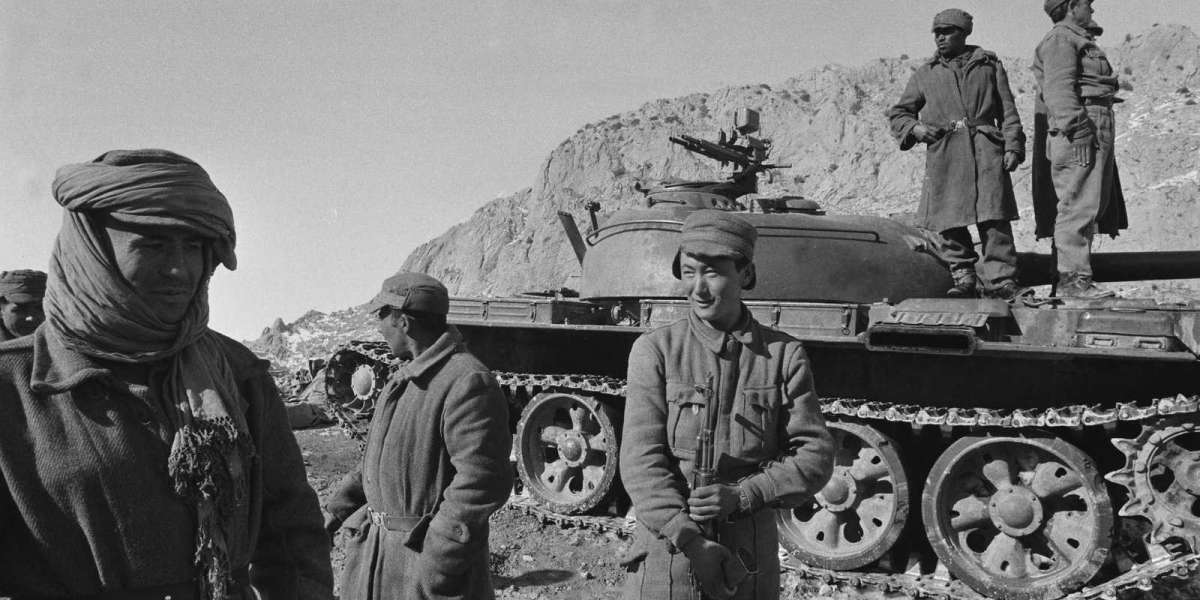The Soviet Union's invasion of Afghanistan was a pivotal moment in the Cold War and world history. The Soviet Union's decision to invade Afghanistan was influenced by a range of political, economic, and strategic factors. In this essay, we will examine the reasons behind the Soviet Union's decision to invade Afghanistan and the consequences that followed.
Historical Background
To understand why the Soviet Union invaded Afghanistan, it is important to provide some historical background. Afghanistan is a landlocked country in Central Asia, bordered by Iran, Pakistan, Turkmenistan, Uzbekistan, and Tajikistan. Afghanistan is a rugged and mountainous country, with a population of approximately 32 million people, consisting of various ethnic groups, including Pashtuns, Tajiks, Hazaras, Uzbeks, and others. Afghanistan has been a crossroads of civilizations and a battleground for many empires throughout history. It was invaded by Alexander the Great, Genghis Khan, Timur, and many others.
In the late 19th century, Afghanistan became a buffer state between the British Indian Empire and the Russian Empire. The Great Game was a geopolitical contest between the British and Russian empires for control over Central Asia, including Afghanistan. The British feared that Russia would use Afghanistan as a gateway to invade India, while the Russians wanted to expand their influence in the region. In 1878, the British invaded Afghanistan to protect their interests and installed a puppet ruler. In 1919, Afghanistan gained independence from Britain, but it remained a volatile country, with frequent coups and civil wars.
In 1978, a communist coup d'etat, led by the People's Democratic Party of Afghanistan (PDPA), overthrew the government of President Mohammad Daud Khan, who was a cousin of the former king. The PDPA was a Marxist-Leninist party, with close ties to the Soviet Union. The new government was led by Nur Muhammad Taraki, who became the President of Afghanistan, and Hafizullah Amin, who became the Deputy Prime Minister. The new government implemented a series of radical reforms, including land reforms, education reforms, and women's rights. However, these reforms were met with resistance from conservative and religious elements, who viewed the reforms as un-Islamic and a threat to traditional Afghan values.
The Afghan Civil War
The communist government's radical reforms and crackdown on opposition groups led to widespread unrest and rebellion. The Afghan Mujahideen, a loose alliance of Islamic and tribal militias, began a guerrilla war against the government, with support from Pakistan, Saudi Arabia, and the United States. The Soviet Union, which had a treaty of friendship and cooperation with Afghanistan, sent military advisors and equipment to support the government. However, the situation in Afghanistan deteriorated rapidly, with the government losing control of large parts of the country to the Mujahideen.
The Soviet Invasion
On December 24, 1979, the Soviet Union launched a full-scale invasion of Afghanistan, with over 100,000 troops crossing the border. The official reason for the invasion was to support the Afghan government in its fight against the Mujahideen and to stabilize the country. However, the Soviet Union had several other strategic and economic reasons for invading Afghanistan.
Strategic Reasons
The Soviet Union had several strategic reasons for invading Afghanistan. Firstly, Afghanistan was seen as a vital buffer state between the Soviet Union and Iran, which had a close relationship with the United States. The Soviet Union feared that if Afghanistan fell to the Mujahideen, it would become a base for anti-Soviet forces, and Iran could also be destabilized. Secondly, the Soviet Union wanted to demonstrate its strength and resolve to the world, especially to its allies in the Warsaw Pact. The Soviet Union was concerned that its allies




Alphonsus Odumu 4 w
Soviet Union